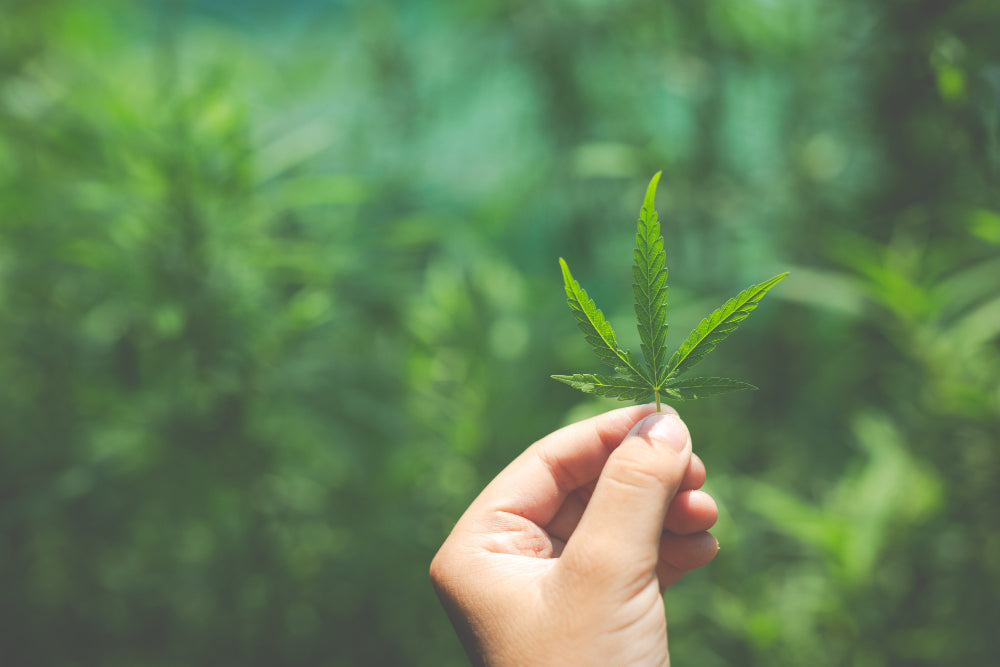
Cannabis-Gesetze und -Vorschriften | Canapuff
Das Verständnis der Komplexität der Cannabisgesetze ist für jeden, der sich für die Entwicklung des Cannabiskonsums und seine Auswirkungen interessiert, von entscheidender Bedeutung. Dieser Blogbeitrag bietet einen umfassenden Überblick über die Cannabis-Legalität und konzentriert sich dabei auf wichtige Aspekte, die die globale Cannabisregulierung beeinflussen.
Was sind Cannabisgesetze?
Cannabisgesetze beziehen sich auf die rechtlichen Rahmenbedingungen für Anbau, Vertrieb, Besitz und Konsum von Cannabis. Diese Gesetze unterscheiden sich erheblich von Rechtsraum zu Rechtsraum und spiegeln die unterschiedlichen gesellschaftlichen, kulturellen und politischen Einstellungen gegenüber Cannabis wider.
Grundlagen der Cannabis-Legalität
Die Legalität von Cannabis ist ein vielschichtiges Thema, das verschiedene Definitionen, Klassifizierungen und historische Kontexte umfasst. Das Verständnis dieser Grundlagen ist für jeden unerlässlich, der den aktuellen Stand der Cannabisregulierung verstehen möchte.
Definitionen und Klassifizierungen
Cannabis wird je nach Verwendung und Rechtsraum unterschiedlich klassifiziert. Es kann als illegale Droge, Arzneimittel oder Freizeitdroge eingestuft werden. Das Verständnis dieser Klassifizierungen hilft zu verstehen, wie Cannabis in verschiedenen Rechtssystemen behandelt wird.
Historischer Kontext der Cannabisgesetze
Die Geschichte der Cannabisgesetze ist geprägt von Veränderungen in der Wahrnehmung und Regulierung. Von der medizinischen Verwendung in der Antike über das moderne Verbot bis hin zu den jüngsten Legalisierungsbewegungen bietet der historische Kontext Einblicke in den aktuellen Rechtsstatus von Cannabis.
Medizinischer vs. Freizeitgebrauch
Die Unterscheidung zwischen medizinischem und Freizeitkonsum von Cannabis ist ein wesentlicher Aspekt der rechtlichen Regelung. Je nach Verwendungszweck der Substanz gelten unterschiedliche Gesetze, die sich auf die Zugänglichkeit und Kontrollmaßnahmen auswirken.
Rechtliche Unterscheidungen
Medizinisches Cannabis unterliegt oft strengen Vorschriften für die Verschreibung, Verteilung und Anwendung. Diese Gesetze sollen sicherstellen, dass Cannabis sicher und effektiv zu therapeutischen Zwecken eingesetzt wird.
Regulatorische Unterschiede
Die Gesetze zum Freizeitkonsum von Cannabis sind im Allgemeinen milder, variieren aber stark. Einige Regionen erlauben den Eigenanbau und -konsum, während andere den Besitz streng bestrafen. Diese regulatorischen Unterschiede spiegeln die unterschiedlichen gesellschaftlichen Einstellungen zum Cannabiskonsum wider.
Das Verständnis der Cannabisgesetze und ihrer Auswirkungen kann dir helfen, fundierte Entscheidungen zu treffen, egal ob du Psychologe bist, studierst oder die Vorteile von Cannabis für den Eigengebrauch erforschst. Sich über diese rechtlichen Nuancen zu informieren, ist unerlässlich, um sich in der sich ständig verändernden Landschaft der Cannabisregulierung zurechtzufinden.
Globale Trends in der Cannabis-Legalität
Die Legalität von Cannabis ist ein dynamisches und sich entwickelndes Thema mit bedeutenden globalen Trends. Das Verständnis dieser Trends ist für alle, die sich für die Psychologie des Cannabiskonsums und die Auswirkungen seiner Legalisierung interessieren, von entscheidender Bedeutung. Dieser Abschnitt untersucht die wichtigsten Entwicklungen, die die aktuelle und zukünftige Cannabisgesetzgebung weltweit prägen.
Entkriminalisierungs- und Legalisierungsbewegungen
Entkriminalisierung bezeichnet die Reduzierung der Strafen für den Besitz und Konsum von Cannabis. In der Regel werden solche Vergehen als geringfügige Übertretungen und nicht als Straftaten behandelt. Legalisierung hingegen bedeutet die vollständige Aufhebung gesetzlicher Verbote und ermöglicht so die regulierte Produktion, den Verkauf und den Konsum von Cannabis. Verschiedene Länder und Staaten haben diese Ansätze übernommen, was zu erheblichen Veränderungen in der öffentlichen Ordnung und der gesellschaftlichen Einstellung gegenüber Cannabis geführt hat.
Auswirkungen gesetzlicher Änderungen
Der Übergang von der Prohibition zu milderen Cannabisgesetzen hat tiefgreifende Auswirkungen auf die öffentliche Gesundheit, die Strafverfolgung und die Wirtschaft. Gesetzesänderungen können zu niedrigeren Inhaftierungsraten, einem besseren Zugang zu medizinischem Cannabis und erheblichen Steuereinnahmen aus dem Cannabisverkauf führen. Diese Änderungen bringen jedoch auch Herausforderungen mit sich, wie beispielsweise die Gewährleistung eines verantwortungsvollen Konsums und die Berücksichtigung potenzieller gesundheitlicher Bedenken.
Regulatorische Rahmenbedingungen
Ein robuster Regulierungsrahmen ist für die Verwaltung des legalen Cannabismarktes unerlässlich. Wirksame Vorschriften tragen dazu bei, dass Cannabisprodukte sicher sind, eine kontrollierte Qualität aufweisen und so vertrieben werden, dass Missbrauch und illegale Aktivitäten minimiert werden.
Lizenzierung und Vertrieb
Die Lizenzierung ist ein entscheidender Bestandteil der Cannabisregulierung und bestimmt, wer Cannabis legal produzieren und verkaufen darf. Regierungen verlangen oft strenge Lizenzierungsverfahren, um sicherzustellen, dass nur qualifizierte Einzelpersonen und Unternehmen auf den Markt gelangen. Vertriebsvorschriften regeln, wie Cannabis die Verbraucher erreicht, einschließlich Einzelhandel, Online-Verkauf und Lieferdienste.
Qualitätskontroll- und Sicherheitsstandards
Qualitätskontroll- und Sicherheitsstandards sind für den Verbraucherschutz unerlässlich. Aufsichtsbehörden legen Richtlinien für die Prüfung von Cannabisprodukten fest, um sicherzustellen, dass sie frei von Verunreinigungen sind und hinsichtlich Wirksamkeit und Inhalt korrekt gekennzeichnet sind. Diese Standards tragen dazu bei, das Vertrauen der Öffentlichkeit zu erhalten und den sicheren Konsum von Cannabis zu fördern.
Zukunft der Cannabis-Legalität
Die Zukunft der Cannabis-Legalität ist von anhaltenden Debatten und möglichen Reformen geprägt. Da immer mehr Länder und Staaten eine Änderung ihrer Cannabis-Gesetze erwägen, ist es wichtig, die möglichen Auswirkungen dieser Änderungen zu verstehen.
Mögliche Rechtsreformen
Mögliche Gesetzesreformen könnten eine weitere Entkriminalisierung, erweiterte medizinische Cannabisprogramme und die vollständige Legalisierung von Cannabis für den Freizeitgebrauch umfassen. Diese Reformen zielen darauf ab, Themen wie soziale Gerechtigkeit, wirtschaftliche Chancen und Aspekte der öffentlichen Gesundheit zu berücksichtigen.
Prognosen und neue Trends
Neue Trends in der Cannabis-Legalität deuten auf eine anhaltende Legalisierung und Normalisierung hin. Innovationen bei Cannabisprodukten , verstärkte Forschung zu medizinischen Vorteilen und eine veränderte öffentliche Wahrnehmung werden voraussichtlich zukünftige Gesetze prägen. Wer über diese Trends informiert bleibt, kann Veränderungen in der Cannabis-Landschaft antizipieren und sich darauf einstellen.
Zusammenfassend lässt sich sagen, dass das Verständnis globaler Trends in der Cannabis-Legalität, der regulatorischen Rahmenbedingungen und der zukünftigen Ausrichtung der Cannabis-Gesetzgebung für jeden, der sich für die psychologischen und gesellschaftlichen Auswirkungen des Cannabiskonsums interessiert, unerlässlich ist. Dieses Wissen unterstützt fundierte Entscheidungen und einen verantwortungsvollen Umgang mit diesem sich entwickelnden Thema.

